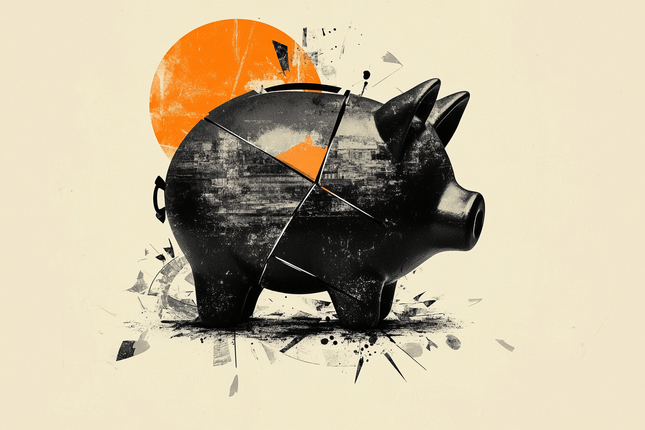- USD/CAD trades flat near 1.4355 in Tuesday’s early Asian session.
- Investors awaited fresh catalysts for US interest rate policies and potential tariffs under Donald Trump.
- Higher crude oil prices might lift the commodity-linked Loonie, but a cautious Fed stance might cap its upside.
The USD/CAD pair holds steady around 1.4355 on Tuesday during the early Asian trading hours. It’s likely to be a quiet trading session in a holiday-shortened and thin-trading-volume week. Later on Friday, the US December ISM Manufacturing Purchasing Managers Index (PMI) will be in the spotlight.
The Federal Reserve (Fed) lowered interest rates by 25 basis points (bps) at its December meeting, bringing the target interest rate range to 4.25% and 4.5%. The Summary of Economic Projections (SEP) revealed that the Fed officials penciled in just two 25 bps cuts in 2025, down from the four projected in September. The anticipation of fewer cuts in 2025 is likely to lift the Greenback against the Canadian Dollar (CAD) in the near term.
Markets brace for major US policy shifts, including potential tariffs, deregulation, and tax changes, in 2025 once president-elect Donald Trump returns to the White House in January. Last month, Trump said he planned to impose 25% tariffs against Canada and Mexico unless the countries reduce the flow of migrants and fentanyl into the United States. The concerns about the risks of imposing new trade tariffs might weigh on the Loonie and create a tailwind for USD/CAD.
However, the rebound in crude oil prices might help limit the CAD’s losses. It's worth noting that Canada is the largest oil exporter to the United States (US), and higher crude oil prices tend to have a positive impact on the CAD value.
Canadian Dollar FAQs
The key factors driving the Canadian Dollar (CAD) are the level of interest rates set by the Bank of Canada (BoC), the price of Oil, Canada’s largest export, the health of its economy, inflation and the Trade Balance, which is the difference between the value of Canada’s exports versus its imports. Other factors include market sentiment – whether investors are taking on more risky assets (risk-on) or seeking safe-havens (risk-off) – with risk-on being CAD-positive. As its largest trading partner, the health of the US economy is also a key factor influencing the Canadian Dollar.
The Bank of Canada (BoC) has a significant influence on the Canadian Dollar by setting the level of interest rates that banks can lend to one another. This influences the level of interest rates for everyone. The main goal of the BoC is to maintain inflation at 1-3% by adjusting interest rates up or down. Relatively higher interest rates tend to be positive for the CAD. The Bank of Canada can also use quantitative easing and tightening to influence credit conditions, with the former CAD-negative and the latter CAD-positive.
The price of Oil is a key factor impacting the value of the Canadian Dollar. Petroleum is Canada’s biggest export, so Oil price tends to have an immediate impact on the CAD value. Generally, if Oil price rises CAD also goes up, as aggregate demand for the currency increases. The opposite is the case if the price of Oil falls. Higher Oil prices also tend to result in a greater likelihood of a positive Trade Balance, which is also supportive of the CAD.
While inflation had always traditionally been thought of as a negative factor for a currency since it lowers the value of money, the opposite has actually been the case in modern times with the relaxation of cross-border capital controls. Higher inflation tends to lead central banks to put up interest rates which attracts more capital inflows from global investors seeking a lucrative place to keep their money. This increases demand for the local currency, which in Canada’s case is the Canadian Dollar.
Macroeconomic data releases gauge the health of the economy and can have an impact on the Canadian Dollar. Indicators such as GDP, Manufacturing and Services PMIs, employment, and consumer sentiment surveys can all influence the direction of the CAD. A strong economy is good for the Canadian Dollar. Not only does it attract more foreign investment but it may encourage the Bank of Canada to put up interest rates, leading to a stronger currency. If economic data is weak, however, the CAD is likely to fall.
Information on these pages contains forward-looking statements that involve risks and uncertainties. Markets and instruments profiled on this page are for informational purposes only and should not in any way come across as a recommendation to buy or sell in these assets. You should do your own thorough research before making any investment decisions. FXStreet does not in any way guarantee that this information is free from mistakes, errors, or material misstatements. It also does not guarantee that this information is of a timely nature. Investing in Open Markets involves a great deal of risk, including the loss of all or a portion of your investment, as well as emotional distress. All risks, losses and costs associated with investing, including total loss of principal, are your responsibility. The views and opinions expressed in this article are those of the authors and do not necessarily reflect the official policy or position of FXStreet nor its advertisers. The author will not be held responsible for information that is found at the end of links posted on this page.
If not otherwise explicitly mentioned in the body of the article, at the time of writing, the author has no position in any stock mentioned in this article and no business relationship with any company mentioned. The author has not received compensation for writing this article, other than from FXStreet.
FXStreet and the author do not provide personalized recommendations. The author makes no representations as to the accuracy, completeness, or suitability of this information. FXStreet and the author will not be liable for any errors, omissions or any losses, injuries or damages arising from this information and its display or use. Errors and omissions excepted.
The author and FXStreet are not registered investment advisors and nothing in this article is intended to be investment advice.
Recommended content
Editors’ Picks

Gold corrects from record-high, holds near $3,300 on broad USD weakness
Gold clings to strong daily gains near $3,330 after setting a new record-high near $3,320 earlier in the day. Persistent worries about the escalating US-China trade war and US recession fears continue to weigh on the USD, while boosting the demand for safe-haven Gold ahead of Fed Powell's speech.

EUR/USD holds firm above 1.1350 ahead of Powell speech
EUR/USD is strongly bid above 1.1350 in European trading on Wednesday. The pair draws support from a fresh round of selling in the US Dollar amid persistent fears over US-China trade war and a lack of progress on EU-US trade talks. Fed Chairman Powell is scheduled to deliver a speech later in the day.

GBP/USD trades at multi-month highs above 1.3250 after UK CPI data
GBP/USD builds on six consecutive days of gains and trades at its highest level since early October above 1.2350 as the US Dollar selloff resumes on Wednesday. The data from the UK showed that the annual CPI inflation softened to 2.6% in March from 2.8% in February but had little impact on Pound Sterling.

BoC set to leave interest rate unchanged amid rising inflation and US trade war
All the attention is expected to be on the Bank of Canada this Wednesday as market experts widely anticipate the central bank to maintain its interest rate at 2.75%, halting seven consecutive interest rate cuts.

Future-proofing portfolios: A playbook for tariff and recession risks
It does seem like we will be talking tariffs for a while. And if tariffs stay — in some shape or form — even after negotiations, we’ll likely be talking about recession too. Higher input costs, persistent inflation, and tighter monetary policy are already weighing on global growth.

The Best brokers to trade EUR/USD
SPONSORED Discover the top brokers for trading EUR/USD in 2025. Our list features brokers with competitive spreads, fast execution, and powerful platforms. Whether you're a beginner or an expert, find the right partner to navigate the dynamic Forex market.



